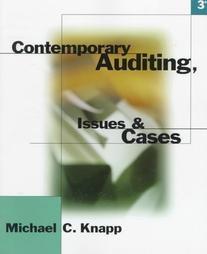Question
One of your college friends works for a parcel delivery company largely owned by his family. His company has recently been approached by two potential
One of your college friends works for a parcel delivery company largely owned by his family. His company has recently been approached by two potential buyers, who we will call X and Y. Firm Xs offer is for $50 cash for each of the 2M outstanding shares, which were trading at $40 per share before the offer was made. Company Ys offer is in cash and stock: they are offering $20 in cash, plus 0.7 shares in the combined firms (i.e., your friends firm with firm Y) for every share outstanding in your friends firm. Firm Y currently has 5M shares outstanding, trading at $35 per share. Firm X estimates being able to generate a synergy of $35M from the acquisition, while firm Y anticipates the synergy being $65M (both of these are net, so after accounting for taxes, restructuring costs, etc.). Your friend owns substantial stock in his company, and his recommendation is valued by other family members. He has turned to you for advice on which offer they should accept.
(a) Based on the pre-announcement value (i.e., without taking into account any possible synergies), how much of a premium does firm Ys offer represent, if any? Taking into account the expected synergies, how does that change your evaluation of firm Ys offer (please give a numerical answer)? Would you recommend your friends company accept the offer from Firm X or from Firm Y?
(b) After a bit more digging, you realize that firm Y has overstated the extent of their expected synergies, and that in reality they anticipate generating only about $50M in incremental value. How does this affect which offer might be preferable for your friend? Please provide a quantitative answer.
(c) Under the assumptions of part (b), what exchange ratio would make firm Ys offer equivalent in purely financial terms to firm Xs? (If you have trouble with this question, leave it for now and come back to it later.)
(d) After even more digging, you realize that firm Y is somewhat of a competitor, doing drone deliveries in many of the same geographic regions in which your friends company operates. Your experience tells you that the Federal Trade Commission (FTC) is likely to raise some concerns, and you anticipate there is about a 15% chance that the deal will be blocked in its entirety. After being approached with this concern, firm Ys management has agreed to adjust their offer slightly: they will still offer the same amount of cash, but now will offer 0.85 shares in the combined firm for every outstanding share in your friends firm. What is the dollar value of the offer now, factoring in the value of the anticipated synergies? Assume that the synergies are as in part (b) of this problem.
Step by Step Solution
There are 3 Steps involved in it
Step: 1

Get Instant Access to Expert-Tailored Solutions
See step-by-step solutions with expert insights and AI powered tools for academic success
Step: 2

Step: 3

Ace Your Homework with AI
Get the answers you need in no time with our AI-driven, step-by-step assistance
Get Started


